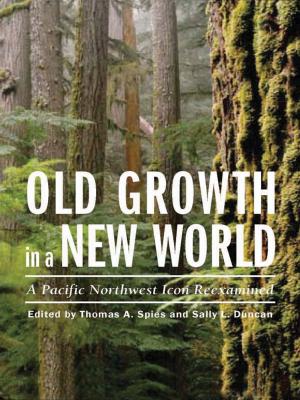Making Sense of Intractable Environmental Conflicts
Concepts And Cases
Nonfiction, Social & Cultural Studies, Political Science, Government, Public Policy, Science & Nature, Nature, Environment, Environmental Conservation & Protection| Author: | Roy Lewicki | ISBN: | 9781610912877 |
| Publisher: | Island Press | Publication: | April 22, 2013 |
| Imprint: | Island Press | Language: | English |
| Author: | Roy Lewicki |
| ISBN: | 9781610912877 |
| Publisher: | Island Press |
| Publication: | April 22, 2013 |
| Imprint: | Island Press |
| Language: | English |
Despite a vast amount of effort and expertise devoted to them, many environmental conflicts have remained mired in controversy, stubbornly defying resolution. Why can some environmental problems be resolved in one locale but remain contentious in another, often carrying on for decades? What is it about certain issues or the people involved that make a conflict seemingly insoluble?
Making Sense of Intractable Environmental Conflicts addresses those and related questions, examining what researchers and experts in the field characterize as "intractable" disputes—intense disputes that persist over long periods of time and cannot be resolved through consensus-building efforts or by administrative, legal, or political means. The approach focuses on the "frames" parties use to define and enact the dispute—the lenses through which they interpret and understand the conflict and critical conflict dynamics.
Through analysis of interviews, news media coverage, meeting transcripts, and archival data, the contributors to the book examine the concept of framing and the role that it plays in conflicts; outline the essential characteristics of intractability and its major causes; offer case studies of eight intractable environmental conflicts; presa rich body of original interview material from affected parties; and set forth recommendations for intervention that can help resolve disputes.
Within each case chapter, the authors describe the historical developmand fundamental nature of the conflict and then analyze the case from the perspective of the key frames that are integral to understanding the dynamics of the dispute. They also offer cross-case analyses of related conflicts. Conflicts examined include those over natural resource use, toxic pollutants, water quality, and growth.
Despite a vast amount of effort and expertise devoted to them, many environmental conflicts have remained mired in controversy, stubbornly defying resolution. Why can some environmental problems be resolved in one locale but remain contentious in another, often carrying on for decades? What is it about certain issues or the people involved that make a conflict seemingly insoluble?
Making Sense of Intractable Environmental Conflicts addresses those and related questions, examining what researchers and experts in the field characterize as "intractable" disputes—intense disputes that persist over long periods of time and cannot be resolved through consensus-building efforts or by administrative, legal, or political means. The approach focuses on the "frames" parties use to define and enact the dispute—the lenses through which they interpret and understand the conflict and critical conflict dynamics.
Through analysis of interviews, news media coverage, meeting transcripts, and archival data, the contributors to the book examine the concept of framing and the role that it plays in conflicts; outline the essential characteristics of intractability and its major causes; offer case studies of eight intractable environmental conflicts; presa rich body of original interview material from affected parties; and set forth recommendations for intervention that can help resolve disputes.
Within each case chapter, the authors describe the historical developmand fundamental nature of the conflict and then analyze the case from the perspective of the key frames that are integral to understanding the dynamics of the dispute. They also offer cross-case analyses of related conflicts. Conflicts examined include those over natural resource use, toxic pollutants, water quality, and growth.















